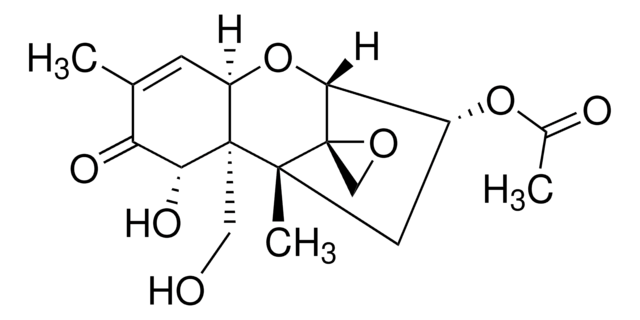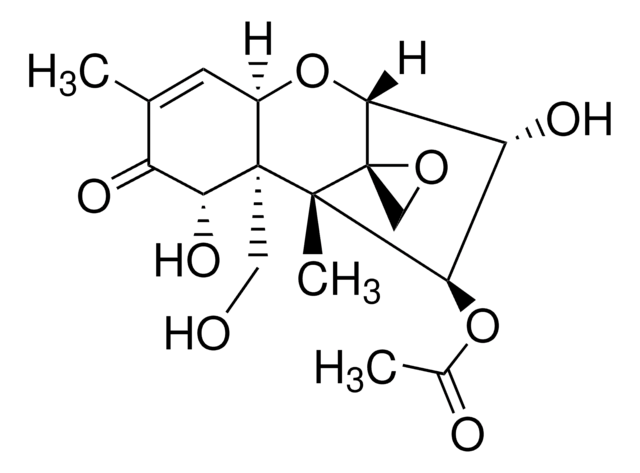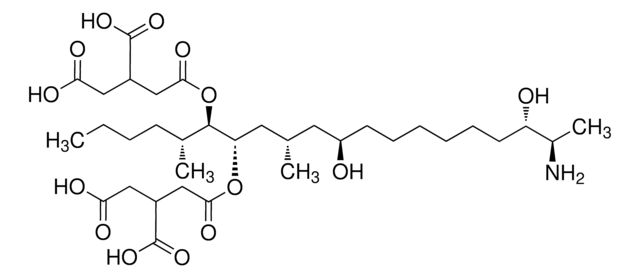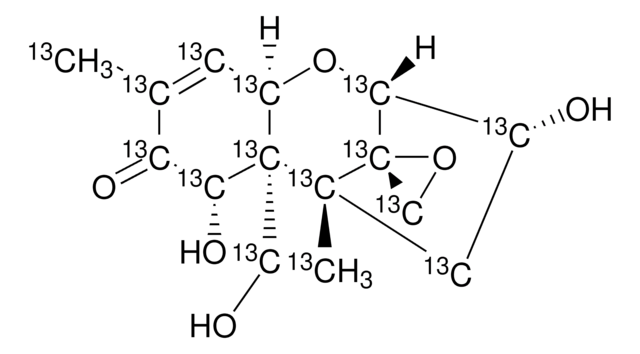A6166
3-Acetyldeoxynivalenol from Fusarium roseum
from Fusarium roseum
Sinónimos:
3α-Acetoxy-7α,15-dihydroxy-12,13-epoxytrichothec-9-en-8-on, 3α-Acetylvomitoxin, 3-AcDON
About This Item
Productos recomendados
biological source
Fusarium roseum
Quality Level
form
powder
storage temp.
2-8°C
SMILES string
[H][C@]12O[C@]3([H])[C@@H](C[C@@](C)([C@]34CO4)[C@@]1(CO)[C@H](O)C(=O)C(C)=C2)OC(C)=O
InChI
1S/C17H22O7/c1-8-4-11-16(6-18,13(21)12(8)20)15(3)5-10(23-9(2)19)14(24-11)17(15)7-22-17/h4,10-11,13-14,18,21H,5-7H2,1-3H3/t10-,11-,13-,14-,15-,16-,17+/m1/s1
InChI key
ADFIQZBYNGPCGY-HTJQZXIKSA-N
¿Está buscando productos similares? Visita Guía de comparación de productos
General description
Application
signalword
Danger
hcodes
Hazard Classifications
Acute Tox. 2 Oral - Acute Tox. 3 Dermal - Acute Tox. 3 Inhalation
Storage Class
6.1A - Combustible acute toxic Cat. 1 and 2 / very toxic hazardous materials
wgk_germany
WGK 3
flash_point_f
Not applicable
flash_point_c
Not applicable
ppe
Eyeshields, Faceshields, Gloves, type P2 (EN 143) respirator cartridges
Certificados de análisis (COA)
Busque Certificados de análisis (COA) introduciendo el número de lote del producto. Los números de lote se encuentran en la etiqueta del producto después de las palabras «Lot» o «Batch»
¿Ya tiene este producto?
Encuentre la documentación para los productos que ha comprado recientemente en la Biblioteca de documentos.
Los clientes también vieron
Nuestro equipo de científicos tiene experiencia en todas las áreas de investigación: Ciencias de la vida, Ciencia de los materiales, Síntesis química, Cromatografía, Analítica y muchas otras.
Póngase en contacto con el Servicio técnico










